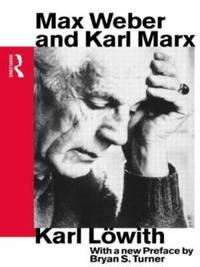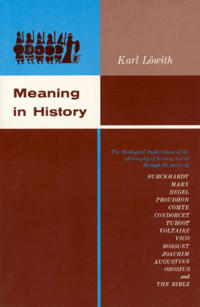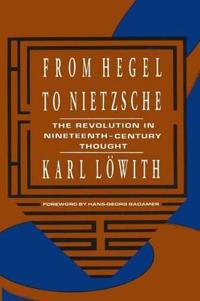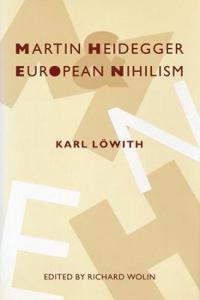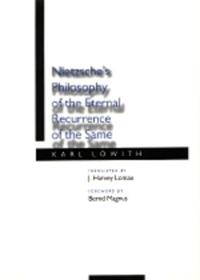Max Weber and Karl Marx (Häftad)
avKarl Lowith
ISBN: 9780415093811 - UTGIVEN: 199309Karl Lowith was the son of a Munich artist and studied philosophy and biology in Munich, Freiburg and Marburg. He began his teaching career in 1928 as Privatdozent in Marburg, working under Heidegger, but was forced to leave in 1934. After two years in Rome he held a chair at Tohku University, Sen[...]
Meaning in History (Pocket)
avKarl Lowith
ISBN: 9780226495552 - UTGIVEN: 195706Modern man sees with one eye of faith and one eye of reason. Consequently, his view of history is confused. For centuries, the history of the Western world has been viewed from the Christian or classical standpoint--from a deep faith in the Kingdom of God or a belief in recurrent and eternal life-cy[...]
From Hegel to Nietzsche (Häftad)
avKarl Lowith
ISBN: 9780231074995 - UTGIVEN: 199109This acknowledged classic is one of the most important works on nineteenth-century philosophy and intellectual history, and a philosophical and cultural history of that century and its impact upon the twentieth. Beginning with an examination of the relationship between Hegel and Goethe, Lvwith discu[...]
Martin Heidegger and European Nihilism (Övrig)
avKarl Lowith
ISBN: 9780231084062 - UTGIVEN: 1995-07-31Written by a former student of Heidegger, this book examines the relationship between the philosophy and the politics of a celebrated teacher and the allure that Nazism held out for scholars committed to revolutionary nihilism.[...]
Martin Heidegger and European Nihilism (Häftad)
avKarl Lowith
ISBN: 9780231084079 - UTGIVEN: 199803Written by a former student of Heidegger, this book examines the relationship between the philosophy and the politics of a celebrated teacher and the allure that Nazism held out for scholars committed to revolutionary nihilism.[...]
Nietzsche's Philosophy of the Eternal Recurrence of the Same (Inbunden)
avKarl Lowith
ISBN: 9780520065192 - UTGIVEN: 199708This long overdue English translation of Karl Lowith's magisterial study is a major event in Nietzsche scholarship in the Anglo-American intellectual world. Its initial publication was extraordinary in itself - a dissident interpretation, written by a Jew, appearing in National Socialist Germany in [...]

